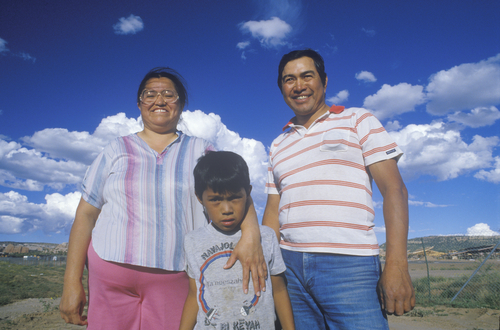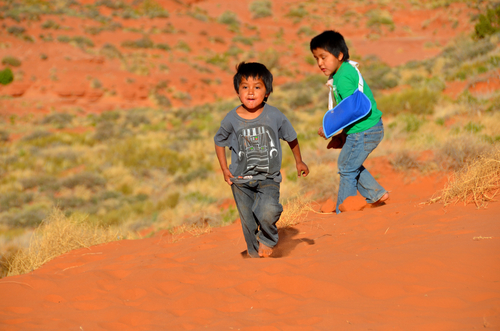World-Wide Indigenous Movement
Southwestern Native Americans, like indigenous people throughout the world, are engaged in a struggle for self-determination. Self-determination refers to the right of a people to determine their own economic, social and cultural developments; that is, to control their own affairs within their own territories. It does not, however, mean disengagement from the larger society or necessarily reflect a desire on the part of the indigenous people to secede from the larger political entity of which they are a part.
Indigenous people are descendants of the people that inhabited a region prior to its colonization by others. World-wide, many indigenous people maintain distinct identities and cultures from that of the dominant society under which they live. Additionally, many indigenous people are economically and politically disadvantaged compared to the dominant society as a result of the processes of colonization. In these ways they are similar to that of ethnic minorities; but unlike ethnic minorities, they continue to live in the homeland of their ancestors.
By virtue of their ancestral ties to the landscape, many human rights organizations recognize certain rights of indigenous people to their territories, lands, and resources. Today, indigenous people are mobilizing on an international scale through organizations such as the World Council of Indigenous Peoples (WCIP), which works to advance the rights of indigenous people. Through the efforts of the WCIP, in 2006 the United Nations approved a Declaration on the Rights of Indigenous Peoples, a nonbinding statement endorsing the right of indigenous people to self-determination and control over their territory and resources.
In recent decades, federal policies towards Native Americans have mirrored the growing international recognition of the rights of indigenous peoples. As discussed in Module 2, in the United States many Native American groups have limited legal sovereignty as a result of treaties that they signed with the federal government in the 18th century (see Module 2 for a review of this concept). However, these sovereignty rights are limited to those tribes covered by treaties and to reservation lands. In the remainder of this module, we will discuss other federal laws, policies, and Native American concerns having to do with the rights of Native Americans in American society.
|
Navajo family, Winslow, Arizona Source - Shutterstock ID: 269716796 |
Children playing on the Navajo reservation Source - Shutterstock ID:192603653 |
Click next page to continue.


